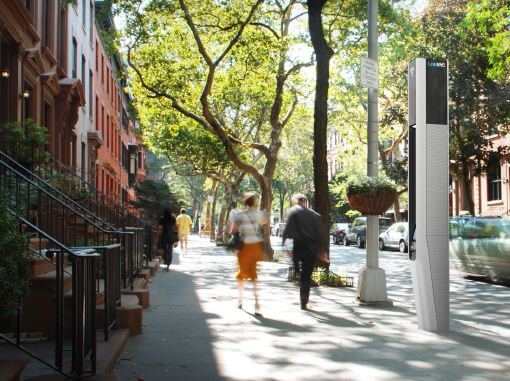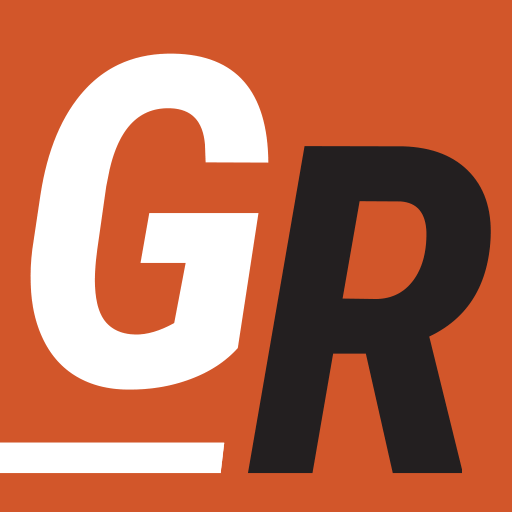
LinkNYC is a planned public Wi-Fi network that intends on providing free internet access at gigabit speeds to millions of New Yorkers. Those speeds are 50 times faster than what the average American pays for broadband The project will take the antiquated payphone infrastructure in New York and replace it with free gigabit public Wi-Fi.
How much will this cost New York tax payers? Nothing! LinkNYC will be entirely funded through digital advertisement displays on newly installed “Links.” Links are kiosks that will house the network connection points. Each Link will offer:
- 24/7 free gigabit internet access
- Free phone calls to anywhere in the US
- A touchscreen tablet interface to access City Services
- Way-finding
- Emergency 911 and 311 access
- Free mobile charging stations
In an earlier article describing how to economically cut the cord on cable TV, I mention the future possibility of using public Wi-Fi for internet access. Granted, there are few public Wi-Fi networks in the United States. Furthermore, the public Wi-Fi networks that do exist are either too slow or cost as much as private internet access. However, LinkNYC could revolutionize how Americans view their relationship with internet access.
Currently, in the U.S, internet broadband access is a service that we purchase from a company as part of their for-profit enterprise. While I’m typically a fan of capitalism, there are situations where the profit engine of capitalism can be a detriment to progress. The best example of this is fire brigades in the 1800s.
When Public is better than Private
Before municipal fire departments, putting out fires was a hedge for insurance companies. The companies would start a fire club or brigade and hand out fire plaques called “firemarks” for their customers to put on the outside of their homes.
When a fire broke out, the brigades from various insurance companies would rush to the fire and extinguished the houses with their brigade’s respective plaque. They would usually watch the houses without plaques burn to the ground while defending their customers from the encroaching fire.
As you can imagine this is an extremely costly and inefficient way of dealing with fire. Eventually communities started coming together as non-profit volunteer fire departments. Thankfully, in 1853 a few government officials started the first municipal fire department in Cincinnati.
Eventually, at the turn of the century, enough U.S. cities burned to the ground for Americans to realize that maybe Cincinnati was on to something and governments should be responsible for putting out fires.
Benefits of Public Wi-Fi
Currently, no one is dying or losing their house due to little or no internet access. However, it is having a serious impact on us all by slowing economic development. A 2009 report by the World Bank and International Finance Corporation indicate:
“high-income countries enjoyed a 1.21 percentage point increase in per capita GDP growth” per 10 percent increase in broadband penetration”
Another study focusing on Kentucky found:
“that for every 1% increase in broadband penetration there was a .18% increase in employment.”
These increases are for average broadband speeds. Imagine the possible economic impacts of gigabit speeds.
Municipal broadband not only creates employment and economic benefits for communities, but also has the following benefits to education:
- Children without broadband access will now have access to the same information as the rest of their classmates.
- Job training and degree classes can be taken online.
- Interactive classrooms are made possible, increasing student engagement.
The benefits are ensuring all your citizens have access to broadband internet are well documented and go far beyond the few listed here. New York City will be pioneers in putting these benefits on display for the nation to see. Ideally LinkNYC will succeed and other major metropolitan areas will follow suit with their own public Wi-Fi networks.
The internet is just like the roads we drive on. Instead of driving to an electronics store I can just go online and use the internet to purchase the new iPhone. Like roads, the internet is part of our nation’s infrastructure. Why is it okay for our tax dollars to pay for one, but not the other?
Furthermore, when a service like the internet has such a far reaching positive impact on economics and education, it only makes sense to pool community resources and deliver that service as a part of the community infrastructure.
Unfortunately those services beneficial to our community are currently managed by the ISP brigades of Verizon, Comcast, and AT&T. Hopefully New York will change the way we think about internet access just like Cincinnati changed the way we think about firefighting.
